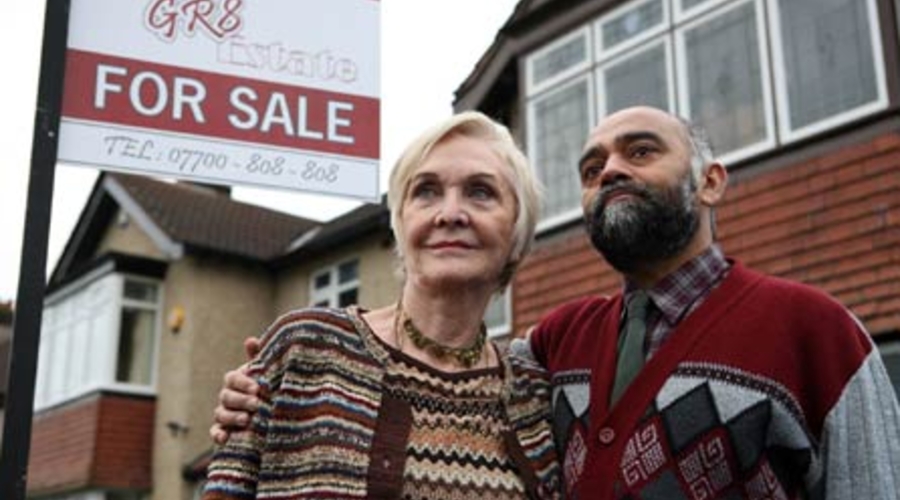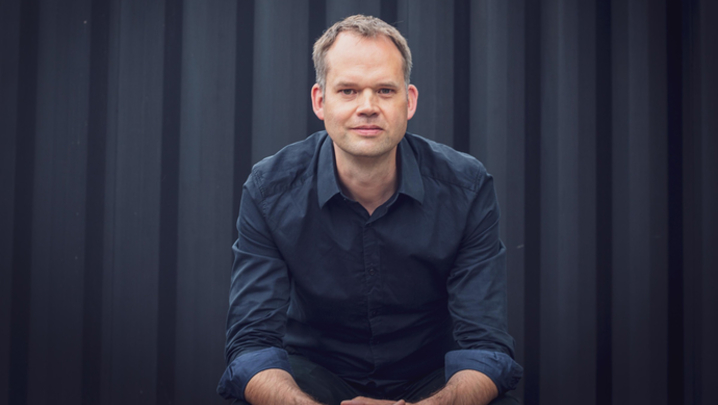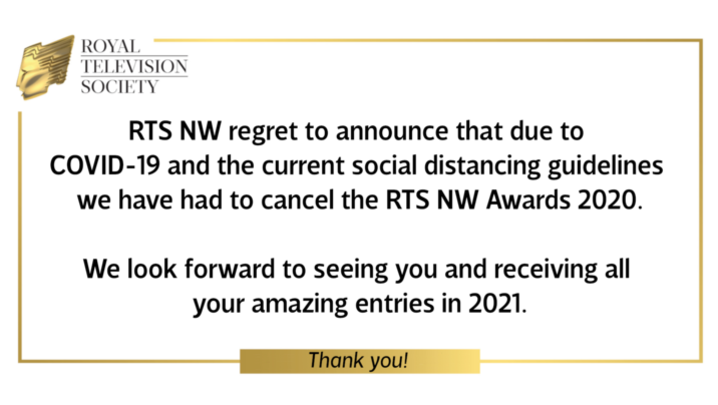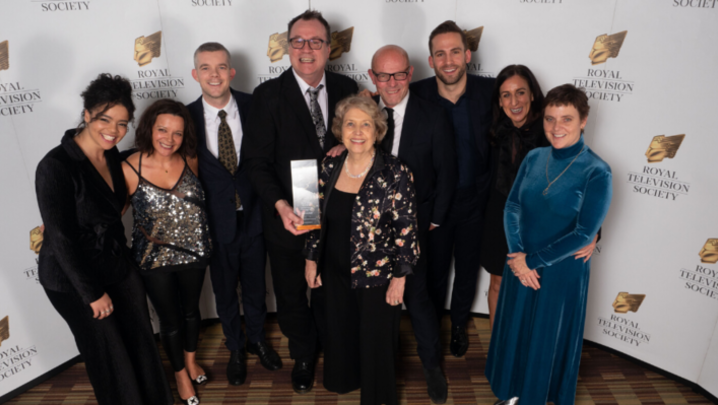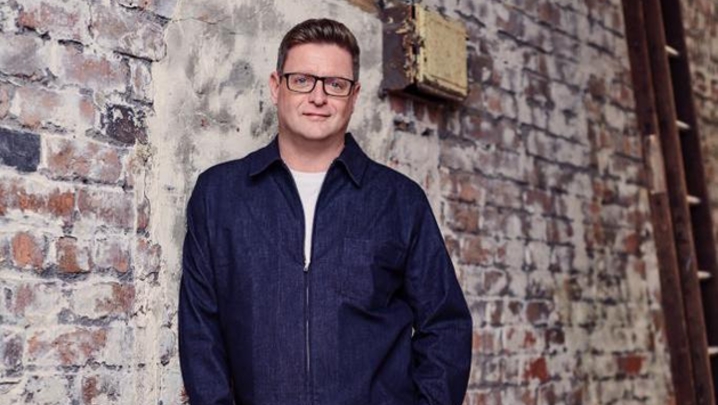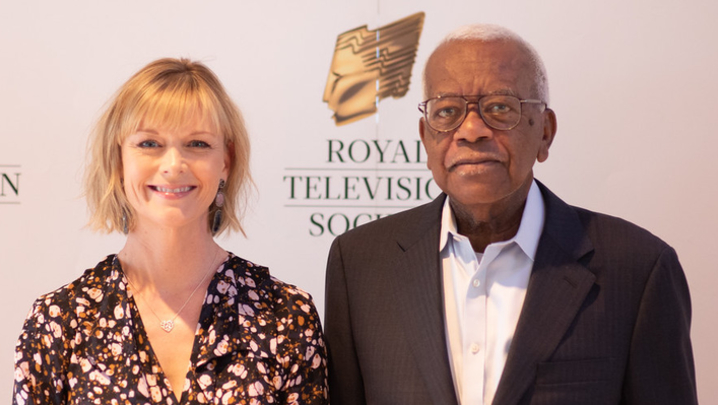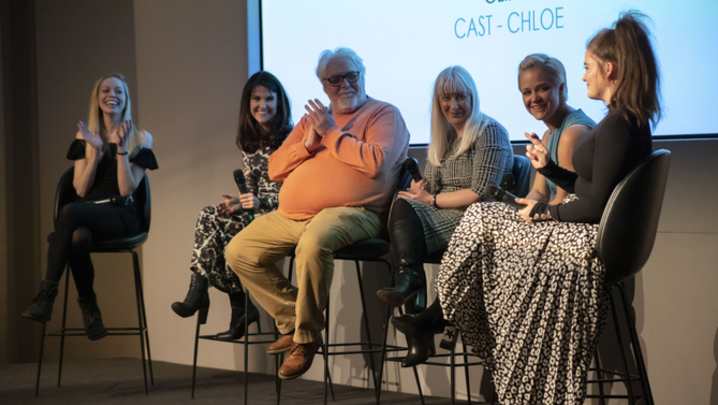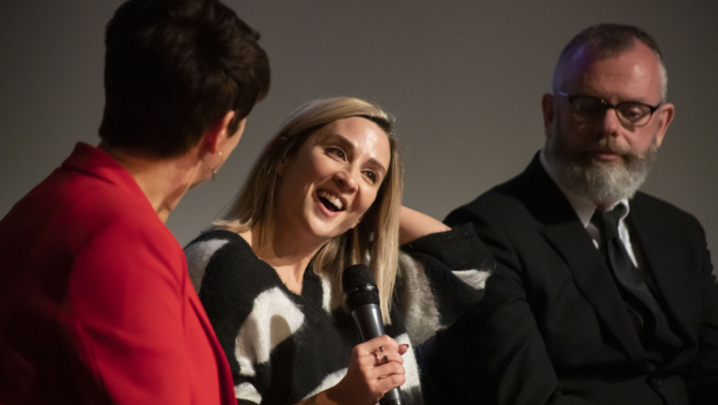“The best stories are the most simple” – the Moving On team discuss the secrets of the long-running drama’s success
Gritty BBC One daytime drama Moving On – which won the Daytime prize at the RTS Programme Awards and celebrated its 50th episode earlier this year – came under the microscope at a North West event at the Lowry Theatre, Salford in late March.
Created by Jimmy McGovern and made by Liverpool’s LA Productions, the anthology drama series made its TV debut in 2009.
Unlike most episodes, which are largely given to first-time writers, the 50th episode, The Registrar, was co-written by McGovern himself – with Megan Ellison, whose late father, Arthur Ellison, had been set to write it with her before his untimely death.
The landmark episode focuses on the collapsing marriage of a registrar, Samantha Bond, who discovers her husband (Neil Morrissey) is having an affair. Line of Duty actor Adrian Dunbar took on directing duties.
Reflecting on the show’s formula, executive producer Colin McKeown said, “We [tell] writers to write about a character who reaches a crisis point in his or her life and moves on. That is fundamentally what Moving On is about.”
LA Productions’ openness to new writing talent allows this concept to flourish. The production company calls for script outlines and reads every single one to find the freshest ideas. It’s clearly a successful policy: of 28 Moving On writers, 15 were given their first commission by the series.
And these new writers find themselves penning the words of some of the country’s biggest-name actors, including Jodi May, Sinead Cusack and John Simm.
The show’s success in retaining long-time viewers and finding new audiences has been achieved despite the tight budgets of daytime programming.
“You have to be inventive when there’s less money: it comes down to less preparation, shorter filming and shorter editing; that creates great value,” explained director Noreen Kershaw.
However, McKeown argued that Moving On’s daytime slot defined the drama. “If Moving On wasn’t on in the afternoon, it would be completely different. We were given the brief to work with afternoon drama, so we serve our audience the best way that we can,” he said.
The show’s producer, Donna Molly, added: “We’re broadcasting in the afternoon, so writers have to focus on telling a really good story – there’s no sex, no violence, no being clever, just pure story.”

